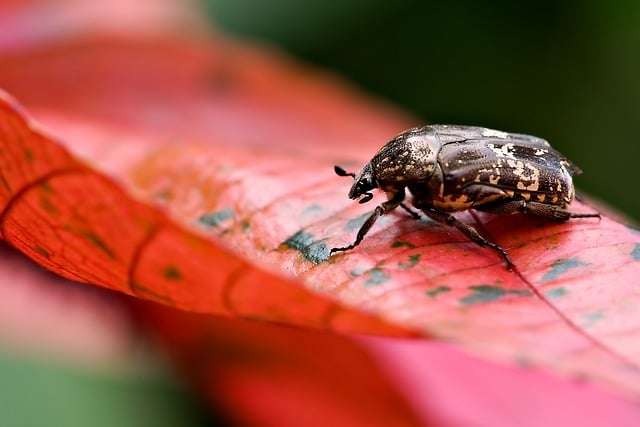How to Make Your Garden Insect Friendly: plant various native plants and avoid chemical pesticides. Provide water sources and create shelters.
Gardening enthusiasts often seek ways to support beneficial insects. A garden teeming with insects can lead to a healthier ecosystem. Native plants attract local insects, offering food and habitat. Chemical pesticides harm insects and disrupt the natural balance. A small water source, like a birdbath, supplies insects with essential hydration.
Mulch, logs, and rocks provide shelter and breeding grounds. By fostering a welcoming environment, you encourage pollinators and pest controllers. This approach helps your garden thrive naturally, reducing the need for artificial interventions. Ultimately, an insect-friendly garden enhances biodiversity and sustainability.
Benefits Of An Insect-friendly Garden
Creating an insect-friendly garden enhances biodiversity and supports pollinators. Utilize native plants and avoid pesticides to attract beneficial insects.
Biodiversity Boost
An insect-friendly garden helps increase biodiversity. Different types of insects will visit your garden. This creates a more balanced ecosystem. Plants also benefit from the variety of insects. These insects can help with pollination and seed dispersal. A diverse garden is more beautiful and interesting.
Natural Pest Control
Insects can act as natural pest controllers. Ladybugs, for example, eat aphids that harm plants. This reduces the need for chemical pesticides. Healthy plants attract fewer pests. A balanced insect population keeps harmful bugs in check. Your garden will thrive without harmful chemicals.
Choosing The Right Plants
Native species are the best for your garden. They attract local insects. Native plants are easier to grow. They need less water and care. These plants fit the local climate. Insects love them because they are familiar. Native plants can be flowers, shrubs, or trees. Flowering plants are a great choice. Bees and butterflies love them. Bright colors and sweet nectar attract insects. Choose a variety of flowers. This gives insects food all year. Sunflowers, daisies, and marigolds are good options. Plant different types of flowers together. This creates a beautiful and insect-friendly garden.
Creating Shelter For Insects
Bug hotels are great for insects. They provide a safe place to stay. Use items like sticks, leaves, and pinecones. These materials create tiny spaces for bugs. Arrange them in a wooden box or old pot. Make sure the bug hotel is in a shady spot. This helps keep it cool. Bugs will love their new home. Leaf litter is perfect for insects. It provides food and shelter. Let leaves stay on the ground. Bugs will hide under them. They will also eat the leaves as they break down. This helps soil stay healthy. Leaf litter also keeps the ground moist. Insects need moisture to survive. Your garden will be buzzing with life.
Providing Water Sources
Shallow dishes are perfect for insects. Fill them with clean water. Place them at ground level. Make sure to keep the water fresh. Insects love water. This helps them stay hydrated. Bird baths can also attract insects. Choose a low bird bath. Fill it with clean water. Place some small stones inside. This gives insects a place to land. Keep the water fresh. Insects will visit often.
How to Make Your Garden Insect Friendly and Avoiding Harmful Chemicals
Choose organic fertilizers for your garden. These fertilizers are safe for insects. Compost is a great option. It helps the soil and is chemical-free. Neem oil can keep pests away. It is also safe for good insects. Soap sprays work well for many pests. They are easy to make at home. Use only a few drops of dish soap in water. Shake well and spray on plants. Companion planting can help your garden thrive. Planting marigolds next to tomatoes can repel pests. Basil planted with peppers can improve growth. Mint can keep away ants and aphids. Always mix different types of plants. This attracts more beneficial insects. Pollinators like bees love flowers. Plant flowers like lavender and sunflowers.
Seasonal Planting Tips
Attract beneficial insects to your garden by planting native flowers and herbs. Create diverse habitats with a mix of plants. Use organic mulch and avoid chemical pesticides.
Spring Planting
Choose native plants that bloom in spring. They attract beneficial insects. Plant herbs like thyme and rosemary. These herbs repel pests. Grow flowers like daisies and marigolds. They attract bees and butterflies. Include a variety of plants. This provides food for different insects. Ensure your garden gets enough sunlight. Insects love sunny spots.
Fall Planting
Plant perennials in the fall. They come back every year. Choose plants like asters and goldenrods. These plants provide late-season nectar. Add mulch to your garden beds. Mulch offers a home for insects. Include plants with berries. Birds and insects love them. Ensure your garden has water sources. Insects need water to survive.
Maintaining Your Insect Habitat
Check your garden often. Look under leaves and rocks. Watch for changes in insect activity. Note any new species. Ensure plants are healthy. Remove dead plants promptly. Healthy plants attract more insects. Use natural fertilizers. Avoid chemical pesticides. Plant native flowers and shrubs. Provide water sources like small ponds. Create shelters with logs and rocks. Rotate crops to maintain soil health. Sustainable practices keep your garden buzzing with life.
Engaging The Community
Organize workshops for your neighbors. Teach them about insect-friendly gardens. Use easy language so everyone understands. Show them how to plant native flowers. Explain the benefits of having insects in the garden. Everyone will enjoy the learning process. Kids can also join and learn. Start a project in your neighborhood. Create a community garden. Everyone can help plant flowers and plants. This will attract more insects. Sharing tools and seeds can save money. Celebrate the garden’s progress together. Neighbors will feel closer and more involved. The garden will become a happy place for insects and people.
Conclusion
Creating an insect-friendly garden is simple and rewarding. Plant diverse flowers, provide water sources, and avoid pesticides. These steps help attract beneficial insects, improving garden health and biodiversity. Start today and enjoy a flourishing, balanced ecosystem right in your backyard.
Happy gardening!
Read to know about importance of water and sunlight for plants







Leave a Reply